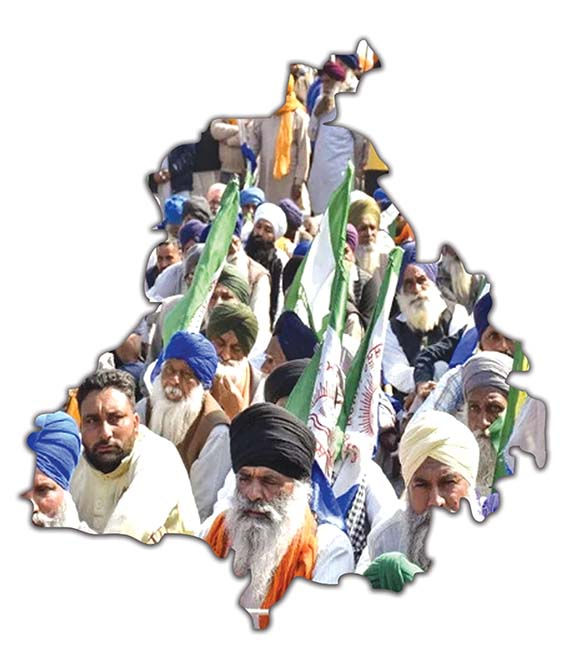A Grim Reminder of Unkept Promises
- Correspondent
- Dec 22, 2024
- 3 min read
Updated: Dec 23, 2024

The farmers of Punjab, whose fields have long been the crucibles of India’s agricultural success, are now setting the stage to highlight rural despair. The 2020–21 farmers’ protests, which forced the government to repeal controversial agricultural laws, were seen by many as a victory. Yet, two years later, a new wave of protests reveals that the core issues, most notably a legal guarantee for Minimum Support Prices (MSP), remain unresolved.
The latest agitation, led by factions like the Samyukta Kisan Morcha (Non-Political) and Kisan Mazdoor Morcha, reflects a mix of frustration and determination. These groups have camped at Punjab-Haryana border points since February, undeterred by the barricades, the arrests, or the Centre’s reticence. Jagjit Singh Dallewal, a 70-year-old farmer leader whose fast-unto-death has now crossed over three weeks, embodies this struggle.
The farmers’ demands are pressing. Chief among them is the legal guarantee of MSP—a measure that could provide much-needed financial stability to millions of farmers. Other demands include rolling back the Electricity (Amendment) Bill, waiving farm loans, and ensuring justice for victims of past violence like the Lakhimpur Kheri massacre.
Farmers’ organizations have also rejected the Centre’s draft National Policy Framework on Agricultural Marketing, warning of a more intense agitation than in 2020 if the policy is implemented.
At a meeting with Punjab Agriculture Minister Gurmeet Singh Khuddian, leaders of 32 farmers’ unions, aligned with the Samyukta Kisan Morcha, voiced unanimous opposition, declaring that the policy’s push toward corporatisation of marketing would be resisted stronger than before. Farmers demanded that grain storage infrastructure remain in the public sector and accused the Centre of withholding Punjab’s Rural Development Fund to promote corporate interests.
Farmer leaders have suggested reopening trade routes through Pakistan’s Wagah border to access Middle Eastern markets, while urging support for crop diversification to reduce India’s $15 billion annual oilseed imports.
Khuddian assured farmers that Punjab would block the policy’s implementation if it jeopardized their interests, vowing further consultations. However, as anger grows, the Centre risks reigniting a movement that reshaped India’s agrarian landscape just three years ago.
Thus far, the government’s response has been both predictable and inadequate. It has reiterated commitments to agricultural reforms while sidestepping the core issue of MSP. The irony is glaring: a parliamentary panel has recommended exactly what the farmers demand—a legally binding MSP—stating it could reduce suicides and uplift the rural economy. Yet, the Centre has not acted, seemingly paralyzed by fears of fiscal strain and political fallout.
For Punjab’s farmers, this is not just about economics but about trust. From their perspective, the BJP-led government’s unfulfilled promises—whether from Narendra Modi’s Gujarat days or the pledges made during the Ramlila Maidan protests in 2018—have eroded the faith that once bound the farmers to the state. This betrayal of trust, amplified by historical neglect of reports like the Swaminathan Commission’s recommendations, fuels the current unrest.
The consequences of inaction are perilous. Protests have disrupted rail services and trade in Punjab, and tensions at border crossings hint at wider unrest. Dallewal’s deteriorating health casts a sombre shadow over a movement that could escalate into a crisis with dire humanitarian and political implications.
Needless to say, the Centre will have to act swiftly if it wants to prevent a reprise of the 2020-21 protests. Legal guarantees for MSP, though fraught with logistical challenges, are not insurmountable. They represent a moral and political imperative for a government that claims to champion farmers. Ignoring these demands risks not only economic instability in India’s breadbasket but also a broader erosion of trust in democratic institutions.





Comments